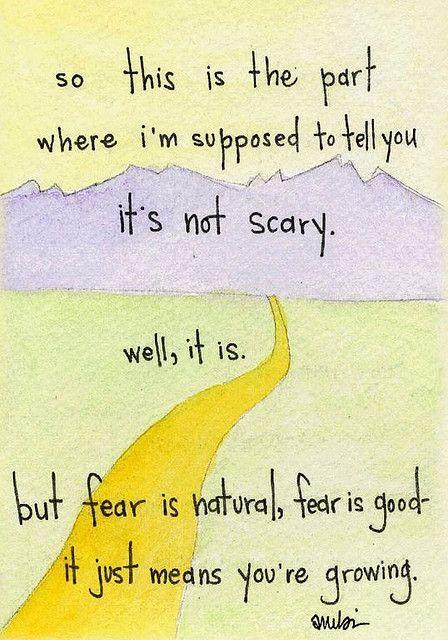

- #Fear of growing up test how to#
- #Fear of growing up test manual#
- #Fear of growing up test professional#

This could be because children often find it difficult to distinguish fiction and imagination from reality, have difficulties recognising familiar faces and facial features until the age of six, and find it difficult to rationalise their thoughts and emotions. Masklophobia is most commonly found in children. Some people are afraid of all masks, costumed clothing, costume characters and mascots, whereas other people’s phobia of masks is centralised on a specific type of mask, such as horror masks, religious masks, masquerade masks or medical face masks. Masklophobia is an extremely individualised phobia, in that it manifests differently in different people. In the end, all it all comes down to is what you learned as a kid, and what your parents or guardians modeled for you.Masklophobia, also commonly referred to as maskaphobia, is an extreme and overwhelming fear of masks and costumes.
#Fear of growing up test how to#
So they avoid doing anything.Īnd if you came from a place of economic or emotional hardship, where you never learned how to handle money or relationships, the idea of staying in a state where that stuff didn't matter so much can be appealing. The fear and insecurity you grew up with manifests into an adult who isn't sure of themselves and is afraid of doing the wrong thing. "Again, you never really learned how to be an adult," says Spinelli.

On the other end of the spectrum, say you grew up in an abusive or neglectful household where you were always shut down. (This could also be the case for those with controlling parents or snowplow parents.) They may have cheered you on and kept you safe, but they were also creating a shaky foundation for your adult self-one where you felt unsure or anxious when it came time to make a decision or do something for yourself. They took care of everything and tended to be a little overprotective. Say you had helicopter parents who were always around and super involved in your life. "A bit of a snapshot is, of course, we go back to what was modeled by our parents." "As a psychoanalyst, we're always sort of looking for the connection to our childhoods," Spinelli says. Still, it helps to put a name to the Peter Pan warning signs we may see in the people around us or in ourselves.
#Fear of growing up test manual#
Peter Pan syndrome is not an official diagnosis or mental health condition recognized by the World Health Organization or the Diagnostic and Statistical Manual of Mental Disorders (DSM-5). "In today's day and age, we don't have those kinds of gender stereotypes, so we really want to be more open in how we apply it," confirms Spinelli. Kiley may have focused on men in his research, but Peter Pan syndrome can apply to any gender. "And they find adult responsibilities truly challenging." "They just are the individuals who really don't want to grow up," psychotherapist and relationship expert Babita Spinelli, L.P., tells mbg.
#Fear of growing up test professional#
The term describes the phenomenon of adults who age physically but not emotionally.Īdults with Peter Pan syndrome, also sometimes called failure-to-launch syndrome, avoid the personal and professional responsibilities of adulthood. Named after the boy who never grew up, the term "Peter Pan syndrome" was first seen in psychoanalyst Dan Kiley's 1983 book The Peter Pan Syndrome: Men Who Have Never Grown Up.


 0 kommentar(er)
0 kommentar(er)
